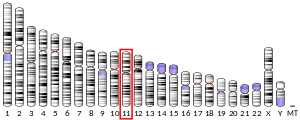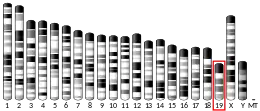| PCNX3 | |||||||||||||||||||||||||||||||||||||||||||||||||||
|---|---|---|---|---|---|---|---|---|---|---|---|---|---|---|---|---|---|---|---|---|---|---|---|---|---|---|---|---|---|---|---|---|---|---|---|---|---|---|---|---|---|---|---|---|---|---|---|---|---|---|---|
| Identifiers | |||||||||||||||||||||||||||||||||||||||||||||||||||
| Aliases | PCNX3, PCNXL3, pecanex homolog 3 (Drosophila), pecanex homolog 3, pecanex 3 | ||||||||||||||||||||||||||||||||||||||||||||||||||
| External IDs | OMIM: 617657 MGI: 1861733 HomoloGene: 17000 GeneCards: PCNX3 | ||||||||||||||||||||||||||||||||||||||||||||||||||
| |||||||||||||||||||||||||||||||||||||||||||||||||||
| |||||||||||||||||||||||||||||||||||||||||||||||||||
| |||||||||||||||||||||||||||||||||||||||||||||||||||
| |||||||||||||||||||||||||||||||||||||||||||||||||||
| Wikidata | |||||||||||||||||||||||||||||||||||||||||||||||||||
| |||||||||||||||||||||||||||||||||||||||||||||||||||
Pecanex homolog 3 is a protein that in humans is encoded by the PCNX3 gene. [5]
References
- 1 2 3 GRCh38: Ensembl release 89: ENSG00000197136 - Ensembl, May 2017
- 1 2 3 GRCm38: Ensembl release 89: ENSMUSG00000054874 - Ensembl, May 2017
- ↑ "Human PubMed Reference:". National Center for Biotechnology Information, U.S. National Library of Medicine.
- ↑ "Mouse PubMed Reference:". National Center for Biotechnology Information, U.S. National Library of Medicine.
- ↑ "Entrez Gene: Pecanex homolog 3". Retrieved 2017-07-19.
Further reading
- Mavaddat N, Dunning AM, Ponder BA, Easton DF, Pharoah PD (2009). "Common genetic variation in candidate genes and susceptibility to subtypes of breast cancer". Cancer Epidemiol. Biomarkers Prev. 18 (1): 255–259. doi:10.1158/1055-9965.EPI-08-0704. PMC 2655077. PMID 19124506.
- Talmud PJ, Drenos F, Shah S, Shah T, Palmen J, Verzilli C, Gaunt TR, Pallas J, Lovering R, Li K, Casas JP, Sofat R, Kumari M, Rodriguez S, Johnson T, Newhouse SJ, Dominiczak A, Samani NJ, Caulfield M, Sever P, Stanton A, Shields DC, Padmanabhan S, Melander O, Hastie C, Delles C, Ebrahim S, Marmot MG, Smith GD, Lawlor DA, Munroe PB, Day IN, Kivimaki M, Whittaker J, Humphries SE, Hingorani AD (2009). "Gene-centric association signals for lipids and apolipoproteins identified via the HumanCVD BeadChip". Am. J. Hum. Genet. 85 (5): 628–642. doi:10.1016/j.ajhg.2009.10.014. PMC 2775832. PMID 19913121.
This article is issued from Wikipedia. The text is licensed under Creative Commons - Attribution - Sharealike. Additional terms may apply for the media files.



